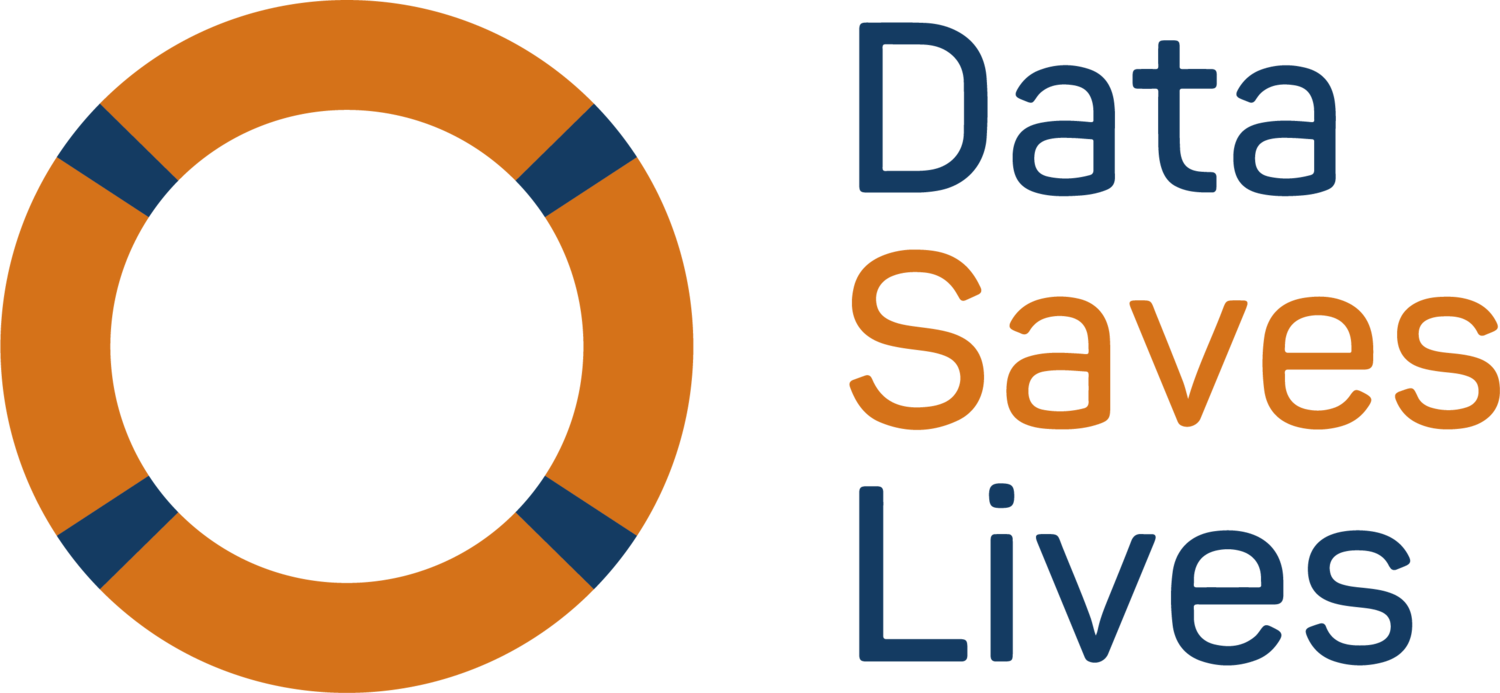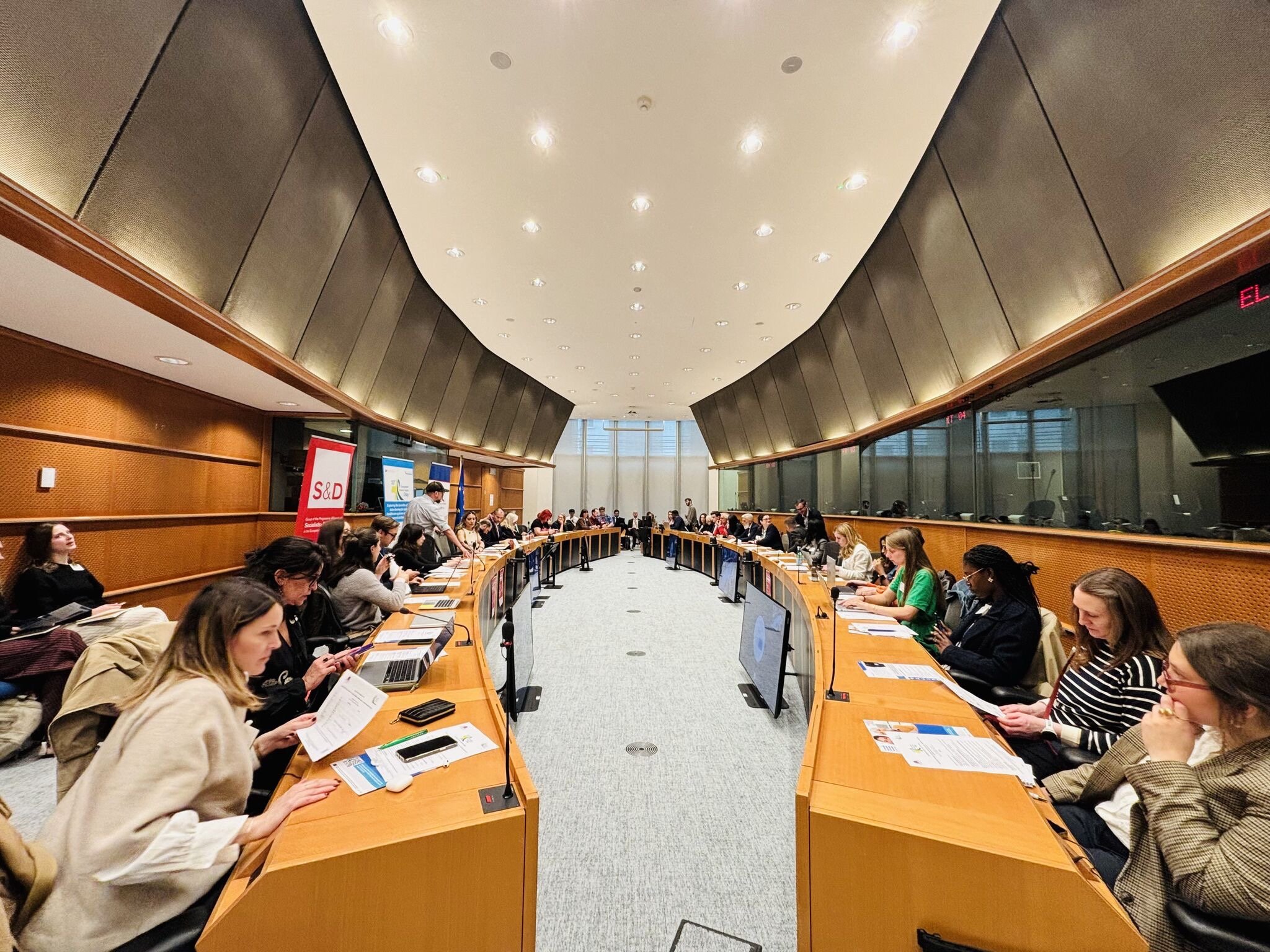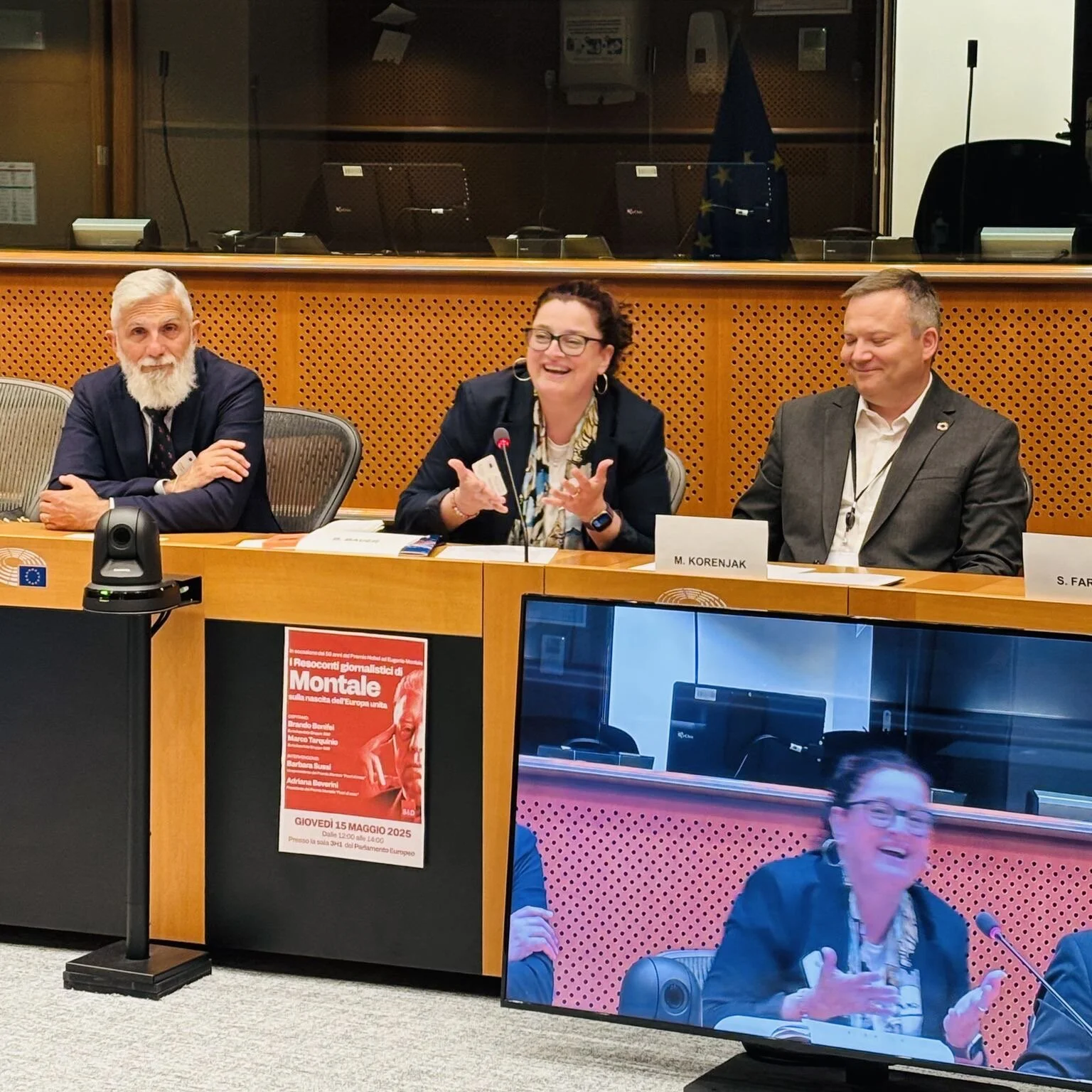Dear English Readers, please scroll down for the English Version! Thank you!
„Wenn man denen so zuhört, dann könnte man meinen, alles ist perfekt“, dachte ich letzte Woche, als ich zu Gast im Europäischen Parlament in Brüssel war. Gesundheitsdaten können Leben retten – wenn man sie sinnvoll nutzt und verantwortungsvoll teilt. Genau darum ging es am 19. Tag der Patientenrechte: Die Vorteile des Teilens von Gesundheitsdaten für Menschen mit Erkrankungen, das Gesundheitssystem und die Forschung auf EU-Ebene.
Das "Active Citizenship Network", eine Organisation, die sich aktiv für Bürger und Patienten einsetzt – und eben für deren Rechte. Das Team um Mariano Votta, Responsible for EU Affairs - Cittadinanzattiva ABS - Active Citizenship Network, hatte mich eingeladen, mitzureden und auch Data Saves Lives Deutschland sowie die Erkenntnisse, die in gut 2,5 Jahren zusammengekommen sind, zu präsentieren.
Das Meeting und die Diskussion
Bildquelle: Active Citizens Network
Zum 19. Tag der Patientenrechte oder Patients' Rights Day 2025 ging es um den Europäischen Gesundheitsdatenraum (European Health Data Space = EHDS), um Gesundheitsdaten und die Vorteile für verschiedene Gruppen – man könnte auch Stakeholder sagen. Also in unserem Fall: Forschung, Patienten, Bürger, aber auch Prävention.
Der EHDS ist eine Initiative der Europäischen Union, die darauf abzielt, das Teilen von Gesundheitsdaten über die Ländergrenzen der EU-Mitgliedsstaaten zu ermöglichen – um damit Versorgung, Forschung, Prävention und Gesundheitssysteme zu verbessern. Im März dieses Jahres trat die Verordnung zur Umsetzung in Kraft und die Mitgliedsländer der EU müssen nun bis 2029 daran arbeiten, den EHDS zu realisieren. Mehr hier: https://www.datasaveslives.de/blog/26-mrz-2025-der-ehdsday2025-ein-neuer-weg-fr-gesundheit-...
Es war eine sehr spannende Mischung verschiedener Perspektiven, die hier zusammenkam: Mitglieder des Europäischen Parlaments, Expertinnen und Experten aus Forschung, Prävention, Politik, den Patient Communities sowie Medienvertreter*innen und das Team des Active Citizenship Network.
Das große Thema – Teilen von Gesundheitsdaten mit all seinen Facetten. Die Interventionen von Mitgliedern des Europäischen Parlaments (MEP) wie Brando Benifei, Vyentis Povilas Andriukaitis, Tomislav Sokol, Fulvia Raffaelli, Head of Unit C1 Digital Health, DG SANTE (Generaldirektion für Gesundheit und Lebensmittelsicherheit), Europäische Kommission, waren interessant zu hören.
Wir kennen viele der Positionen bereits, und auch der Ruf nach dem Vertrauen der Patienten und Bürger kam erneut auf. Es braucht Vertrauen – das Teilen von Gesundheitsdaten ist wichtiger denn je für Patienten, Bürger und die Gesundheitssysteme. Patienten bekommen volle Kontrolle und jede Sicherheit, die nötig ist. Und eine Aussage in Bezug auf die Gestaltung des EHDS ließ mich durchaus mit Fragezeichen zurück:
"Daten werden nicht missbraucht werden können."
Das sehe ich kritisch. Ich frage mich, ob es eine 100%ige Sicherheit überhaupt gibt – und wenn ja, wie soll das aussehen?
Ich fragte mich auch, warum wir immer über Patienten, aber sehr selten über Bürgerinnen und Bürger sprechen. Letztlich betrifft der EHDS uns alle, egal ob mit einer Erkrankung lebend oder gesund. Und nur um hier klarzustellen, natürlich müssen wir Menschen mit Erkrankungen, wie es immer so schön heißt, in den Mittelpunkt stellen, da sie direkt und schneller betroffen von Veränderungen sind als gesunde Menschen, aber am Ende geht uns das Thema als Gesellschaft an.
Bildquelle: Active Citizenship Network
In meiner kurzen Intervention, die ich geben durfte, habe ich mich daher auf die drei Punkte fokussiert, die bei Data Saves Lives Deutschland von Beginn an sehr deutlich als Bedarf auf der Liste standen – und die uns schon immer begleitet haben: Information, Kommunikation und Partizipation.
Wir, die Bürgerinnen und Bürger, müssen informiert sein über den EHDS – seine Vorteile, Risiken und Regeln. Wir brauchen Kompetenz. Diese Kompetenz muss man erweitern, indem man aktuelle Ereignisse kommuniziert: breitflächig, aktuell und unabhängig davon, ob positiv oder negativ. Bürgerinnen und Bürger müssen sich auskennen – dann können sie sich aktiv beteiligen. Partizipation ist einer der Schlüssel, wenn es um die Ausgestaltung von Regelwerken, Datentransfer und anderen Themen rund um das Teilen von Gesundheitsdaten geht.
Ein anderes Thema war das, was man als Bürgerin oder Bürger zurückbekommt, wenn man seine Daten teilt. Wir bei Data Saves Lives Germany haben bereits im Jahr 2023 die Gründung einer gemeinnützigen Organisation vorgeschlagen, die zum einen beim Abruf von Daten eine Art „Gebühr“ einfordert, die dann wiederum zur Förderung der Gesundheitskompetenz sowie der digitalen und Datenkompetenz Programme entwickelt – damit alle informiert werden können. Und: Der Outcome von Forschungsprojekten mit Gesundheitsdaten muss zügig kommuniziert werden, damit gerade Patientinnen und Patienten, pflegende Angehörige und auch die Ärzteschaft gut informiert entscheiden können, wenn es um therapeutische nächste Schritte geht.
Die Diskussion war interessant und lehrreich. Die Expertinnen und Experten neben mir waren:
- Prof. Johanna Blom (Professorin für Biopsychologie, Pädiatrische & Verhaltensneurowissenschaften, Universität Modena; Koordinatorin des IHI Facilitate Projekts)
- Aneta Tyszkiewicz (Direktorin für Digitale und Datenfragen, Europäischer Verband der Pharmazeutischen Industrie und Verbände – EFPIA)
- Marko Korenjak (Präsident der Europäischen Leberpatientenvereinigung – ELPA; kommissarischer Direktor der Öffentlichen Agentur der Republik Slowenien für Qualität im Gesundheitswesen)
- Sara Farina (Assistenzärztin für Hygiene, Präventivmedizin und öffentliche Gesundheit, Università Cattolica del Sacro Cuore; Teammitglied im PROPHET-Projekt)
Es war interessant zu sehen, wie nah wir uns im Panel mit den Argumenten kamen, hier herrschte in vielen Punkten Einigkeit. Gerade was die Schulung von Menschen betrifft. Prof. Blom brachte das Argument, dass man bereits bei Kindern damit beginnen muss, sie zu schulen und zu informieren, damit Kompetenz wachsen kann. Ein Punkt der völlig richtig ist und wichtig. Auch was Prävention betrifft, die von Sara Farina betont wurde.
Wir alle betonten den großen Bedarf an Aufklärung und Kompetenzvermittlung. Ein Vorschlag war, man könne das den Ärztinnen und Ärzten überlassen. Hier herrschte wenig Einigkeit, denn, wer die laufenden Diskussionen über Ressourcen bei Arztbesuchen, in vielen europäischen Ländern kennt, dem ist klar: Das geht nicht.
„Wenn ich meinen Arzt, den ich nicht wirklich oft sehe und wenn dann für 10 bis 20 Minuten, dann will ich von ihm mehr über MS und Behandlungsmöglichkeiten wissen und keine Digitalisierungsinfos haben. Zeit ist knapp, das Budget auch, und ich wünsche mir von meinem Arzt Infos zu meiner Erkrankung und eine vernünftige Diskussion – das ist erst mal die Aufgabe.“
Man muss sich bewusst machen: Ein Besuch beim Arzt ist oft emotional, anstrengend und stressig. Wie soll man dann mit Digitalinformationen umgehen? Gar nicht. Auch etwas, das ich in vielen Interviews mit Menschen mit chronischen Erkrankungen gelernt habe. In Zeiten wie diesen, in denen Ressourcen knapp und Wartezeiten lang sind, fokussiert man sich auf sich und die Erkrankung. Der Rest muss draußen bleiben.
So gesehen …
Die Diskussion war ein wertvolles Learning – für mich und für DSL DE. Wenn ich an meinen ersten Gedanken zurückdenke, dann klingt es wirklich wie eine schöne neue Welt. Eine, die vielversprechend ist, die ich gerne hätte. Bis wir soweit sind, gibt es in vielen Bereichen unglaublich viel zu tun. Für alle.
Über DSL DE
Data Saves Lives Deutschland ist ein gemeinnütziges von Patienten getriebenes Projekt. Unsere Arbeit leisten wir im Rahmen der uns zur Verfügung stehenden Ressourcen – objektiv und unabhängig, aber nicht unbegrenzt. Damit wir Informationsangebote, Austauschformate und verständliche Inhalte auch langfristig und möglichst vielen zugänglich machen können, sind wir auf Unterstützung und Förderung angewiesen. Auch deshalb sind wir nicht immer sofort oder überall präsent. Umso wichtiger ist es, dass wir gemein...
Mehr dazu?
Falls Sie jetzt Lust auf mehr haben, empfehlen wir Ihnen folgende DSL DE Ressourcen:
- Unser aktuelles DSL DE Magazin, den DSL DE Kompass, ein Magazin, in dem wir viele Perspektiven von Patienten, Experten und Forschern zusammengebracht haben und das Thema Kommunikation diskutieren.
- Unser DSL DE Fachgedöns, ein neues Glossar, das wir im Dezember 2024 neu aufgelegt haben und in dem wir technische Fachbegriffe verständlich erklären.
Beide Ressourcen sind kostenfrei zum Download auf unserer Website erhältlich. Dort finden Sie auch Informationen zu Events, Online Sessions und zu unseren Kanälen.
The English Version:
19th Patients' Rights Day: Data Saves Lives Germany in the European Parliament on the European Health Data Space
"Listening to them, you'd think everything was perfect," I thought last week when I was a guest at the European Parliament in Brussels. Health data can save lives - if you use it wisely and share it responsibly. This is exactly what the 19th Patients' Rights Day was all about: the benefits of sharing health data for people with diseases, the healthcare system and research at EU level.
The "Active Citizenship Network", an organization that actively campaigns for citizens and patients - and for their rights. The team around Mariano Votta, Responsible for EU Affairs - Cittadinanzattiva ABS - Active Citizenship Network, had invited me to join in and also to present Data Saves Lives Germany and the findings that have come together over a good 2.5 years.
The meeting and the discussion
The 19th Patients' Rights Day 2025 was all about the European Health Data Space (EHDS), health data and the benefits for various groups - you could also call them stakeholders. So in our case: research, patients, citizens, but also prevention.
The EHDS is an initiative of the European Union that aims to enable the sharing of health data across the borders of EU member states - in order to improve care, research, prevention and healthcare systems. The implementing regulation came into force in March this year and EU member states now have until 2029 to implement the EHDS.
It was a very exciting mix of different perspectives that came together here: Members of the European Parliament, experts from research, prevention, politics, the patient communities, media representatives and the Active Citizenship Network team.
The big topic - sharing health data with all its facets. The interventions of Members of the European Parliament (MEPs) such as Brando Benifei, Vyentis Povilas Andriukaitis, Tomislav Sokol, Fulvia Raffaelli, Head of Unit C1 Digital Health, DG SANTE (Directorate General for Health and Food Safety), European Commission, were interesting to hear.
We are already familiar with many of the positions, and the call for the trust of patients and citizens also came up again. Trust is needed - sharing health data is more important than ever for patients, citizens and healthcare systems. Patients get full control and all the security they need. And one statement regarding the design of the EHDS certainly left me with question marks:
"Data will not be able to be misused."
I take a critical view of that. I ask myself whether there is 100% security at all - and if so, what should it look like?
I also wondered why we always talk about patients but very rarely about citizens. Ultimately, EHDS affects us all, whether we live with a disease or are healthy. And just to be clear here, of course we have to focus on people with illnesses, as it is always so nicely put, as they are directly and more quickly affected by changes than healthy people, but ultimately the issue concerns us as a society.
In my brief intervention, which I was allowed to give, I therefore focused on the three points that were very clearly on the list of needs at Data Saves Lives Germany from the very beginning - and which have always been with us: Information, communication and participation.
We, the citizens, need to be informed about the EHDS - its benefits, risks and rules. We need competence. This competence must be expanded by communicating current events: broadly, up-to-date and regardless of whether they are positive or negative. Citizens need to know their way around - then they can actively participate. Participation is one of the keys when it comes to shaping regulations, data transfer and other issues relating to the sharing of health data.
Another topic was what you get back as a citizen when you share your data. We at Data Saves Lives Germany have already proposed the establishment of a non-profit organization in 2023, which on the one hand demands a kind of "fee" when data is retrieved, which in turn then develops programs to promote health literacy as well as digital and data literacy - so that everyone can be informed. And: the outcome of research projects with health data must be communicated quickly so that patients, family caregivers and doctors in particular can make well-informed decisions when it comes to the next therapeutic steps.
The discussion was interesting and informative. The experts next to me were:
- Prof. Johanna Blom (Professor of Biopsychology, Pediatric & Behavioral Neurosciences, University of Modena; Coordinator of the IHI Facilitate project)
- Aneta Tyszkiewicz (Director of Digital and Data Affairs, European Federation of Pharmaceutical Industries and Associations - EFPIA)
- Marko Korenjak (President of the European Liver Patients Association - ELPA; Acting Director of the Public Agency of the Republic of Slovenia for Quality in Healthcare)
- Sara Farina (Assistant Physician for Hygiene, Preventive Medicine and Public Health, Università Cattolica del Sacro Cuore; team member of the PROPHET project)
It was interesting to see how close we came to each other on the panel with the arguments, there was agreement on many points. Especially when it comes to training people. Prof. Blom made the argument that you have to start training and informing children so that they can develop skills. A point that is absolutely right and important. Also in terms of prevention, which was emphasized by Sara Farina.
We all emphasized the great need for education and skills transfer. One suggestion was that this could be left to the doctors. There was little agreement on this, because anyone familiar with the ongoing discussions about resources for doctor visits in many European countries knows that this is not an option.
"When I see my doctor, who I don't really see very often and when I do, it's for 10 to 20 minutes, I want to know more about MS and treatment options, not digitalization information. Time is tight, so is the budget, and I want my doctor to give me information about my condition and have a sensible discussion - that's the task for now."
You have to be aware of this: A visit to the doctor is often emotional, exhausting and stressful. So how should you deal with digital information? Not at all. Another thing I've learned in many interviews with people with chronic illnesses. In times like these, when resources are scarce and waiting times are long, people focus on themselves and their illness. The rest has to stay outside.
Seen in this light ...
The discussion was a valuable learning experience - for me and for DSL DE. When I think back to my first thoughts, it really does sound like a brave new world. One that is promising, one that I would like to have. Until we get there, there is an incredible amount of work to be done in many areas. For everyone.
About DSL DE
Data Saves Lives Germany is a non-profit, patient-driven project. We carry out our work within the resources available to us - objectively and independently, but not indefinitely. We are dependent on support and funding from so that we can continue to provide information, exchange formats and comprehensible content in the long term and make it accessible to as many people as possible. This is another reason why we are not always present immediately or everywhere. This makes it all the more important that we work together...
More about this?
If you are now keen to find out more, we recommend the following DSL DE resources:
- Our current DSL DE magazine, the DSL DE Kompass, a magazine in which we have brought together many perspectives from patients, experts and researchers to discuss the topic of communication.
- Our DSL DE Fachgedöns, a new glossary that we relaunched in December 2024 and in which we explain technical terms in an understandable way.
Both resources are available to download free of charge from our website. There you will also find information on events, online sessions and our channels.



